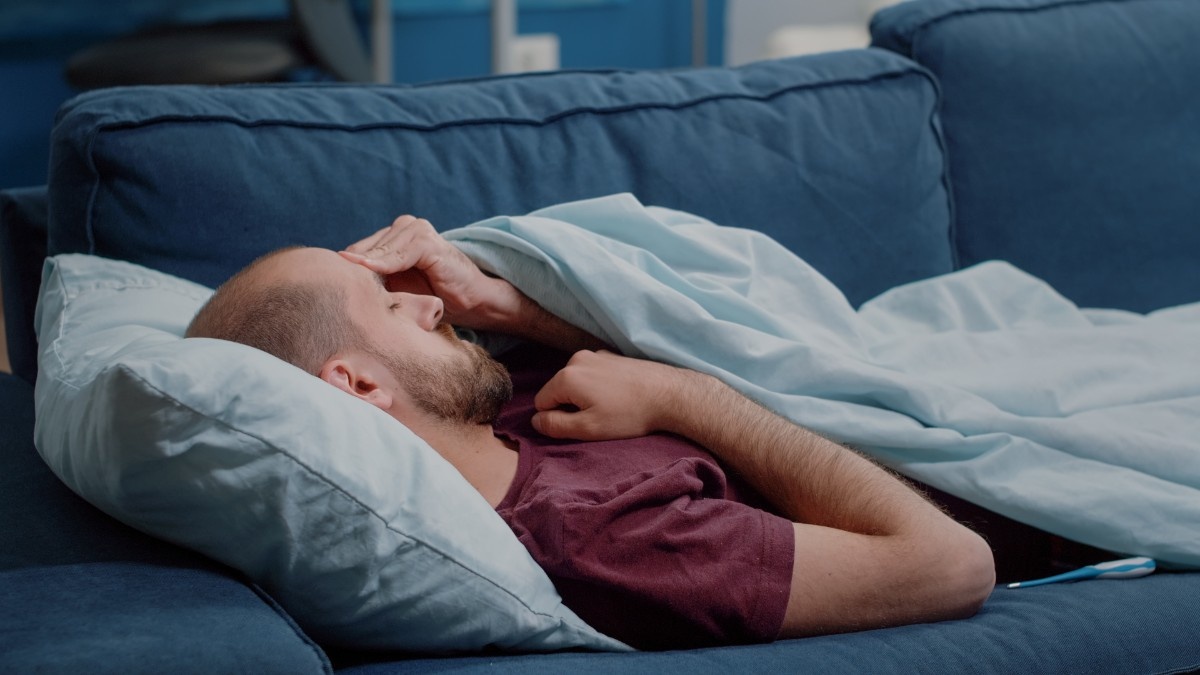Quality sleep is essential for maintaining overall health and well-being. However, many men struggle with sleep disturbances, which can have far-reaching effects on physical health, emotional well-being, and quality of life. One often-overlooked factor that contributes to sleep issues in men is testosterone levels.
Testosterone, the primary male sex hormone, not only plays a critical role in energy levels, muscle mass, and libido but also has a significant impact on sleep quality. In this blog, we will explore the link between testosterone and sleep in men, particularly focusing on how low testosterone levels may contribute to sleep disturbances, and how Testosterone Replacement Therapy (TRT) can improve sleep and overall health.
What is Testosterone?
Testosterone is a hormone that is primarily produced in the testicles in men and is responsible for many essential bodily functions, including the development of male physical traits, muscle growth, and the regulation of sex drive. Testosterone levels naturally begin to decline after the age of 30, and this decrease can lead to a variety of symptoms, including fatigue, decreased libido, and irritability. These symptoms are often indicative of a condition known as Low Testosterone (Low T).
How Low Testosterone Affects Sleep in Men
Testosterone plays an essential role in regulating the sleep-wake cycle and promoting restful, uninterrupted sleep. Research has shown that men with low testosterone levels often experience sleep disturbances such as insomnia, restless sleep, or difficulty staying asleep throughout the night. The link between testosterone and sleep is complex, but here are a few key ways in which low testosterone may impact sleep quality:
1. Decreased Sleep Duration
Low testosterone levels have been associated with shorter sleep durations in men. Testosterone is believed to help regulate the body’s internal clock, promoting a deeper, more restorative sleep. When testosterone levels are low, it may be more difficult for the body to enter the deeper stages of sleep, leading to frequent awakenings throughout the night and less time spent in restorative sleep.
2. Sleep Apnea
Men with low testosterone levels may be at an increased risk for developing sleep apnea, a condition in which breathing repeatedly stops and starts during sleep. Studies have found that testosterone may play a role in controlling the upper airway muscles and breathing patterns during sleep. Low testosterone levels can contribute to the development of obstructive sleep apnea, which can result in poor sleep quality and leave men feeling fatigued during the day.
3. Increased Cortisol Production
Testosterone helps regulate the body’s stress hormone, cortisol. When testosterone levels are low, cortisol production may increase, leading to heightened levels of stress and anxiety. Elevated cortisol levels are known to disrupt sleep by making it difficult to relax and fall asleep. High cortisol levels can also lead to restless sleep, leaving men feeling unrested and fatigued.
4. Mood Swings and Depression
Low testosterone is closely linked to mood disturbances such as irritability, anxiety, and depression. These mood changes can interfere with the ability to relax and fall asleep. Depression, in particular, is known to be a significant contributor to insomnia and poor sleep quality. Low testosterone levels may exacerbate these mood disorders, further complicating sleep issues.
Testosterone Replacement Therapy (TRT) and Sleep Improvement
At Synchronicity Health, we specialize in Testosterone Replacement Therapy (TRT), a medically-proven treatment designed to restore testosterone levels and alleviate symptoms of low testosterone. TRT has been shown to have a positive impact on sleep quality for men who struggle with sleep disturbances related to low testosterone. Here’s how TRT can help improve sleep:
1. Improved Sleep Duration
By restoring testosterone to optimal levels, TRT can help improve the sleep-wake cycle, leading to longer and more restful sleep. Men undergoing TRT often report experiencing deeper, uninterrupted sleep, which allows for improved physical recovery and mental clarity the following day.
2. Reduction in Sleep Apnea Symptoms
TRT may help reduce the severity of sleep apnea symptoms. Several studies have indicated that testosterone replacement can improve upper airway function, potentially reducing the frequency of sleep apnea episodes. Men who undergo TRT may find that their breathing becomes more stable during sleep, leading to a better quality of rest.
3. Reduced Cortisol Levels
TRT helps regulate cortisol levels, reducing the body’s stress response and promoting relaxation. Lower cortisol levels can help men feel more at ease, both during the day and at night, making it easier to fall asleep and stay asleep throughout the night.
4. Improved Mood and Mental Well-being
One of the most significant benefits of TRT is the improvement in mood and overall mental well-being. As testosterone levels are restored to normal, many men experience a reduction in anxiety, depression, and irritability. With a more balanced mood, it becomes easier to relax and unwind at the end of the day, leading to better sleep quality.
Who is a Good Candidate for TRT?
If you’re experiencing any of the following symptoms, you may be a candidate for Testosterone Replacement Therapy:
- Chronic fatigue or feeling tired despite adequate rest
- Low libido or reduced interest in sex
- Mood changes such as irritability or depression
- Difficulty building or maintaining muscle mass
- Increased body fat, particularly around the abdomen
- Difficulty concentrating or experiencing brain fog
- Reduced bone density or increased risk of fractures
- Sleep disturbances such as insomnia or poor sleep quality
At Synchronicity Health, we conduct comprehensive evaluations, including blood tests and a review of your symptoms, to determine if TRT is the right solution for you. Our experienced healthcare team will work with you to develop a personalized treatment plan tailored to your specific needs.
Conclusion
Testosterone plays a crucial role in many aspects of a man’s health, including sleep quality. Low testosterone levels can contribute to sleep disturbances, leaving men feeling fatigued, irritable, and mentally foggy. Testosterone Replacement Therapy (TRT) offers a safe and effective solution for men struggling with Low T and sleep issues, helping to restore hormonal balance and improve sleep quality.
At Synchronicity Health, we specialize in personalized healthcare solutions, including TRT, to help men achieve optimal health and well-being. If you’re struggling with low testosterone and sleep issues, contact us today to learn more about how TRT can help you get the restful sleep you need to live your best life.



